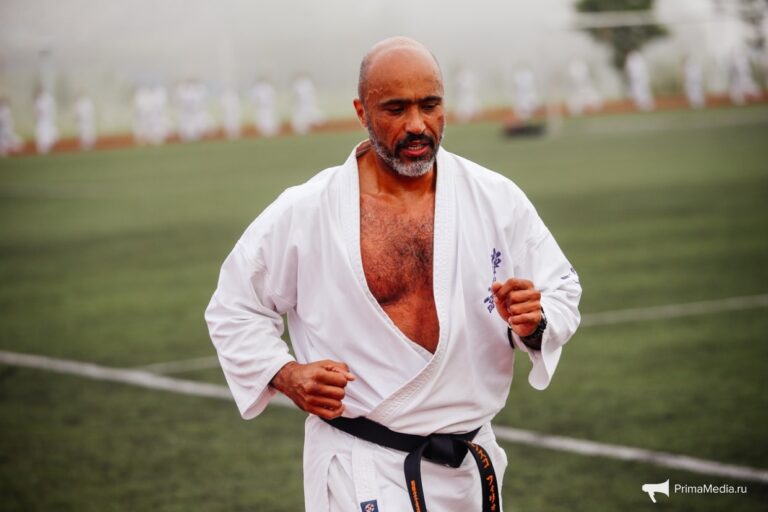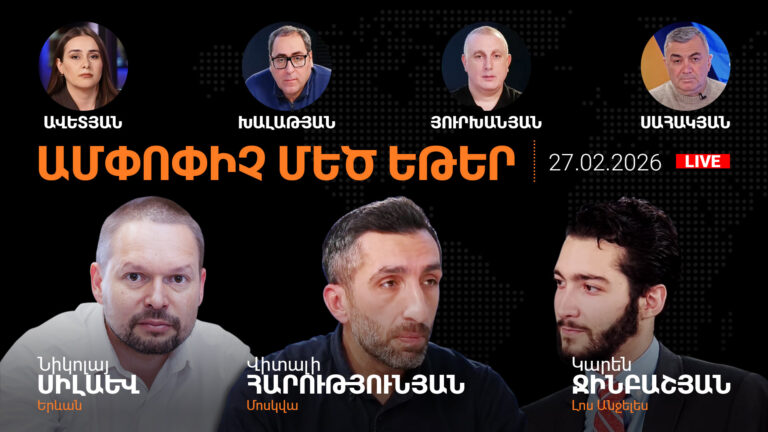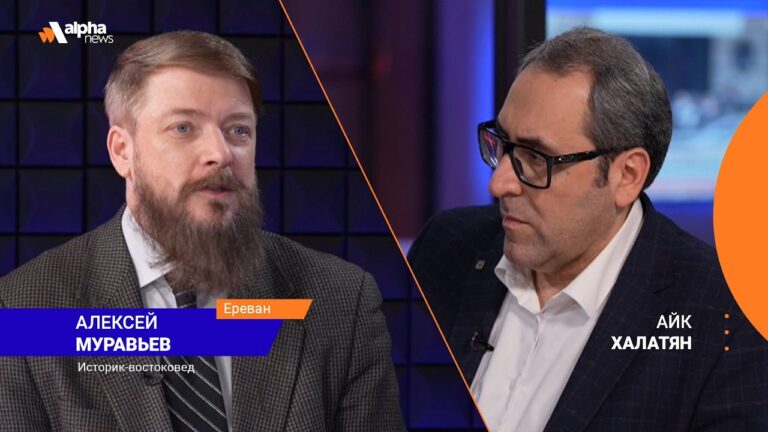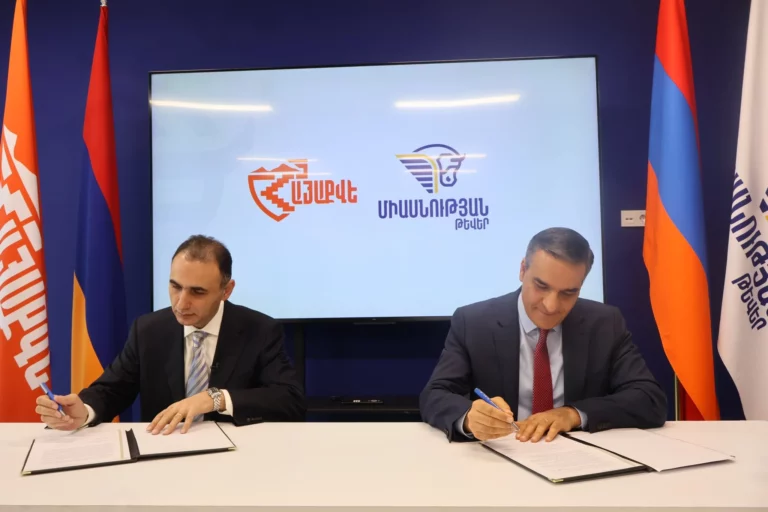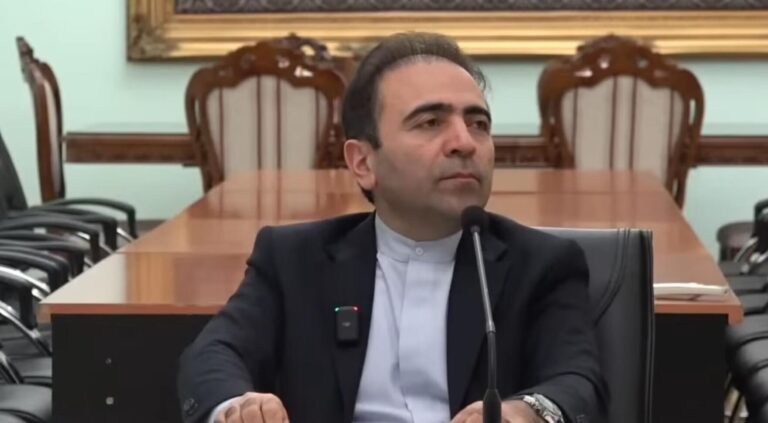Does Pashinyan consider the Russian TV program more dangerous than the Azerbaijanis in Armenia?
October 25 2023, 23:30
For any state, it is important that its leading “elite” be able to set priorities correctly, or at least be able to maintain a balance between personal interests and the interests of the state. The inability to set priorities was one of the many reasons for Artsakh’s liquidation, something that put Armenia on the verge of turmoil. And even all the events that have happened over the past few years and months have not changed the priorities in the policy of the Armenian authorities by an inch. To make it clear, it is worth giving only two examples:
1. The day before, it was reported by the press service of the Ministry of Foreign Affairs that the Russian Ambassador to Armenia, Sergey Kopyrkin, was summoned to the Armenian Foreign Ministry and handed a note of protest in connection with a Russian TV program in which “insulting and completely unacceptable statements addressed to senior officials of the Republic” were voiced. The program aired on October 23, and the ambassador was summoned to the Foreign Ministry on October 24. That was fast.
2. On the same day, October 23, the Commissioner of the Council of Europe for Human Rights, Dunja Mijatovic, met with representatives of the so-called Western Azerbaijan Community. According to the information not refuted by the Council of Europe, Mijatovic noted the importance of “the right to return refugees, including Azerbaijanis ‘expelled’ from Armenia, adding that the solution to this issue requires political will.” Neither the Armenian Foreign Ministry, nor the government of the country, nor Pashinyan’s press secretary, who apologizes live for the word “Artsakh”, did not comment in any way not only on this meeting but also did not react at all to the words about “expelled Azerbaijanis”.
The priorities are obvious: the Russian TV program was perceived by the authorities as a threat to their own position, and the Russian ambassador was summoned to the Foreign Ministry. The Mijatovic meeting, which fits into the general policy of presenting territorial claims to Armenia from Azerbaijan and the policy of resettling Azerbaijanis in the country, is not perceived by the authorities as a threat to personal status.
As for the mythical “Western Azerbaijan Community”, it should be recalled that almost 10 months after the beginning of the blockade of Artsakh by Azerbaijan and the military aggression against Artsakh, Ilham Aliyev and Recep Tayyip Erdogan renewed claims on Syunik. And at the end of September, hearings were held on the topic “Return to West Azerbaijan: legal aspects” in the Azerbaijani parliament.
During the hearings, representatives of the “Western Azerbaijan Community” announced new requirements for Armenia. Azerbaijanis should “return” to 300 settlements on the territory of Armenia, and the Republic of Armenia itself allegedly caused material damage to private farms in the amount of $2.5 billion and to public farms in the amount of $17.5 billion; thus, it is obliged to “compensate for this damage caused over 30 years.”
Moreover, Baku and Ankara are not limited to the creation of a “Western Azerbaijan Community”. In May 2020, a few months before the 44-day war, they announced the establishment of “the Republic of West Azerbaijan in exile.” The chair of this initiative group, Gafar Chakhmagly, stated that “the main goal of the Republic of West Azerbaijan is to ‘return’ all the ‘historical lands of Azerbaijan’, including Yerevan, Zangebasar (the Armenian city of Masis), Goichu (Lake Sevan), Zangezur (Syunik), Gyumri, and all the “historical lands” of Azerbaijan that have become the borders of modern Armenia.”
In other words, Azerbaijan has never hidden its plans for the dismemberment of Armenia and the establishment of a new puppet state on its territory. The point is that the Armenian government, led by Nikol Pashinyan, does not respond to these threats.
Moreover, the meeting of the heads of Armenia and Azerbaijan scheduled for the end of October in Brussels will also not take place for the reason that Baku, sensing a change in the balance of power with Armenia, will tighten its position in the negotiations aiming at re-establishing statehood on the territory of modern Armenia.
The balance of power has been changed, which is why Ilham Aliyev refused to meet with Nikol Pashinyan on October 5 in Granada, Spain. Now Azerbaijan, being in a better position, will insist on new concessions from Armenia—one of Baku’s demands was voiced by Ankara, which appealed to the IAEA with a demand to close the Metsamor Nuclear Power Plant—and only if these demands are met will it agree to continue negotiations.
This is what happens when the country’s leadership always gives priority to personal interests rather than state ones.

